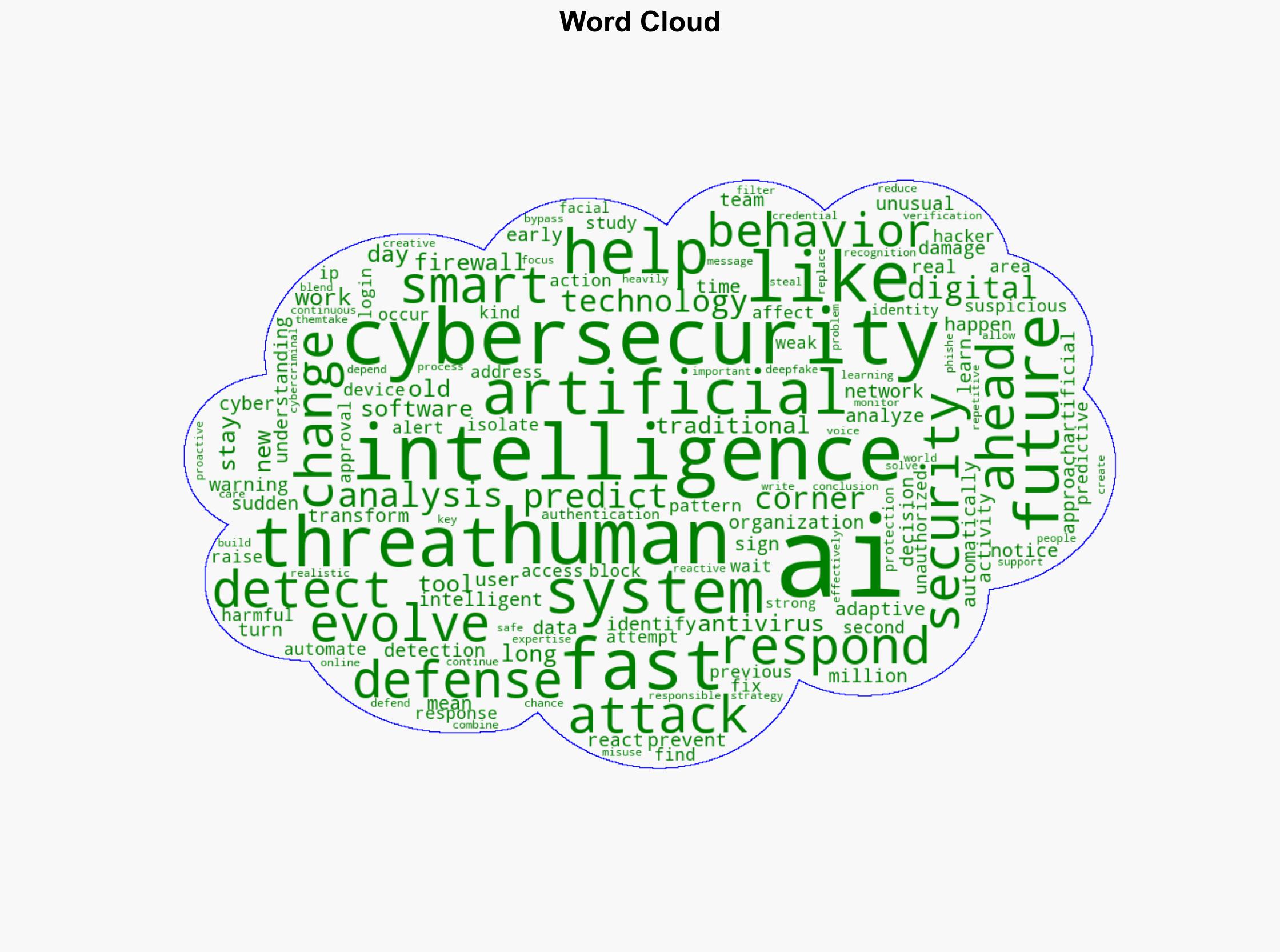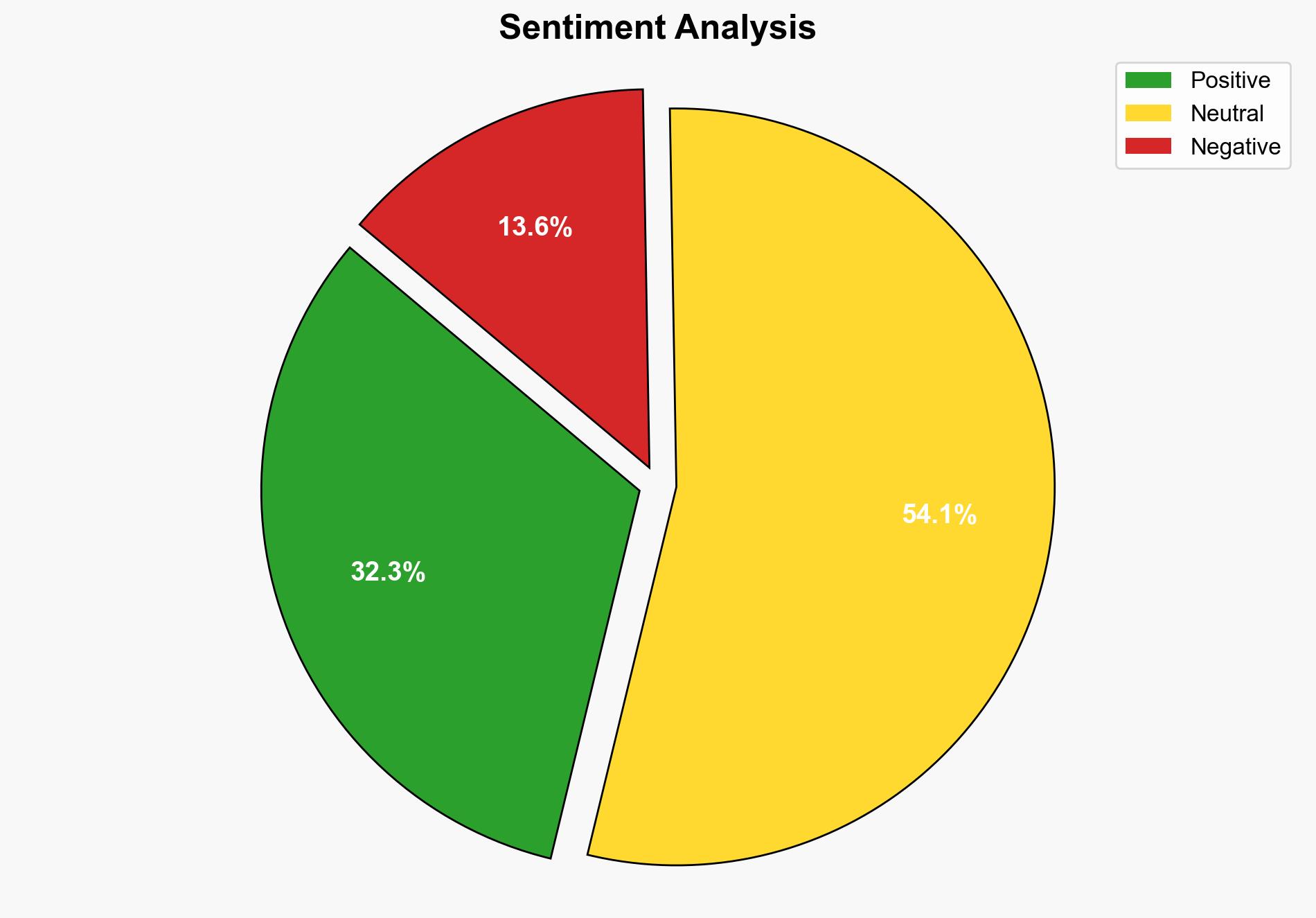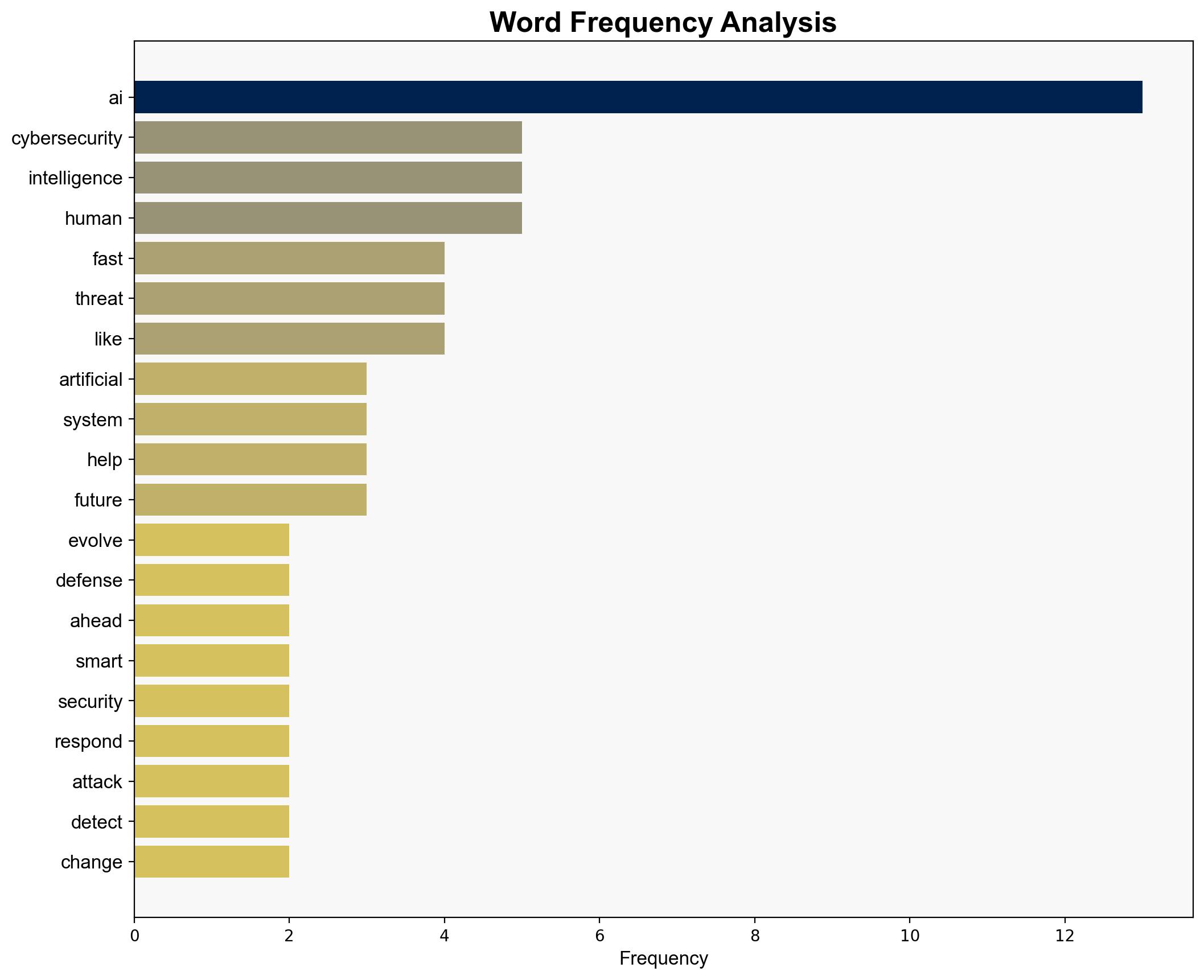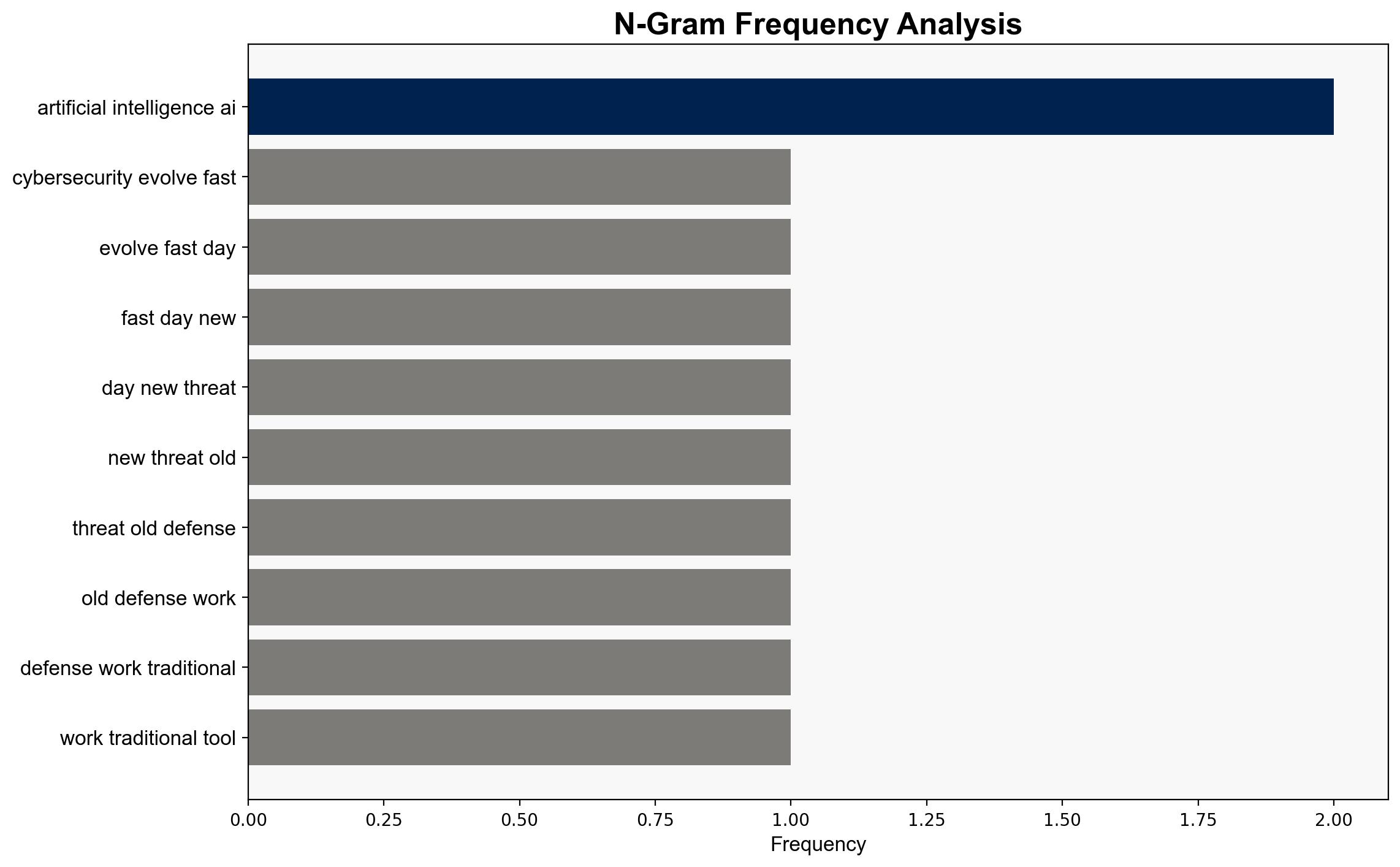How Artificial Intelligence is Changing Cybersecurity – C-sharpcorner.com
Published on: 2025-10-06
Intelligence Report: How Artificial Intelligence is Changing Cybersecurity – C-sharpcorner.com
1. BLUF (Bottom Line Up Front)
Artificial Intelligence (AI) is significantly transforming cybersecurity by enabling faster threat detection and response. The most supported hypothesis is that AI will enhance cybersecurity capabilities, making them more proactive and adaptive. Confidence level: Moderate. Recommended action: Invest in AI-driven cybersecurity solutions and continuous learning systems to stay ahead of evolving threats.
2. Competing Hypotheses
1. **AI Enhances Cybersecurity**: AI technologies improve cybersecurity by enabling rapid threat detection, predictive analysis, and automated responses, thereby reducing reliance on traditional tools like firewalls and antivirus software.
2. **AI Introduces New Vulnerabilities**: While AI enhances cybersecurity, it also introduces new vulnerabilities, such as the creation of deepfakes and sophisticated phishing attacks that can bypass existing security measures.
Using the Analysis of Competing Hypotheses (ACH) 2.0, the first hypothesis is better supported due to the emphasis on AI’s ability to analyze large volumes of data in real-time and its predictive capabilities. However, the second hypothesis highlights potential risks that should not be overlooked.
3. Key Assumptions and Red Flags
– **Assumptions**: AI systems can effectively learn and adapt to new threats faster than human analysts. Organizations will adopt AI technologies widely and integrate them effectively.
– **Red Flags**: Over-reliance on AI could lead to complacency in human oversight. The potential for AI to be used maliciously by cybercriminals is not fully addressed.
– **Blind Spots**: The impact of AI on privacy and ethical considerations in cybersecurity practices is not discussed.
4. Implications and Strategic Risks
– **Economic**: Increased investment in AI-driven cybersecurity could lead to higher costs for organizations, but also potential cost savings from reduced breach incidents.
– **Cyber**: AI could escalate the arms race in cybersecurity, with both defenders and attackers leveraging AI technologies.
– **Geopolitical**: Nations investing in AI for cybersecurity could gain a strategic advantage, potentially leading to imbalances in cyber capabilities.
– **Psychological**: Trust in AI systems may vary, affecting their adoption and effectiveness.
5. Recommendations and Outlook
- Invest in AI-driven cybersecurity solutions and ensure continuous training for cybersecurity personnel to adapt to AI advancements.
- Develop ethical guidelines and frameworks to govern the use of AI in cybersecurity.
- Scenario-based projections:
- **Best Case**: AI significantly reduces cyber threats, leading to a safer digital environment.
- **Worst Case**: AI vulnerabilities are exploited, leading to widespread cyber incidents.
- **Most Likely**: A balanced integration of AI and human expertise enhances cybersecurity resilience.
6. Key Individuals and Entities
Atul Gupta, C-sharpcorner.com community members.
7. Thematic Tags
national security threats, cybersecurity, counter-terrorism, regional focus




